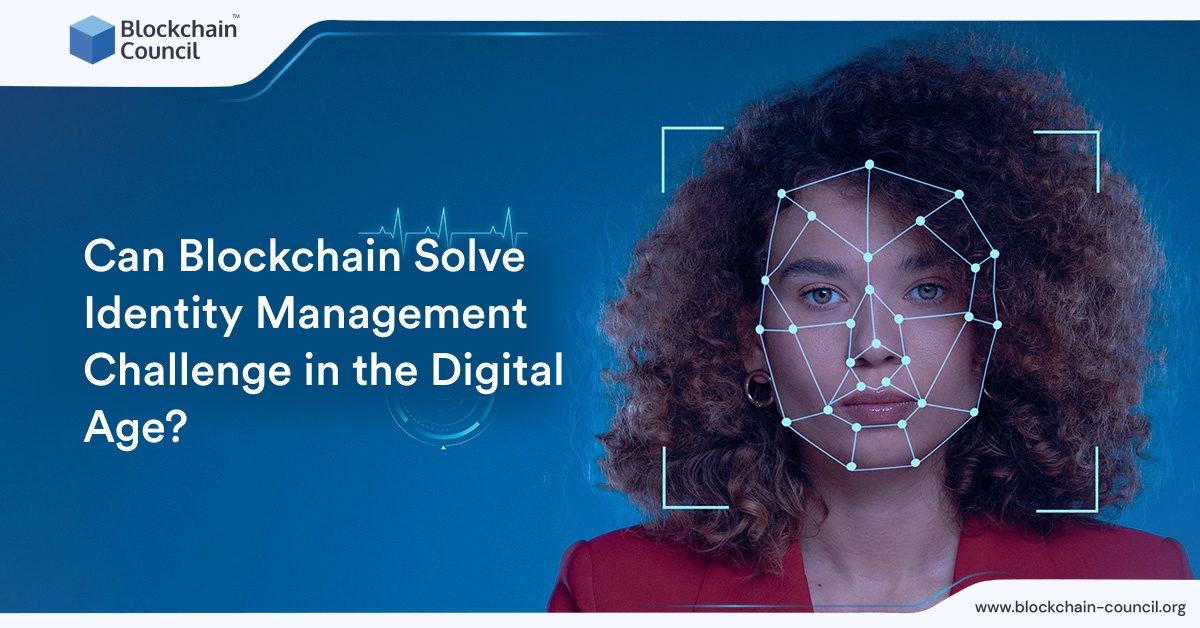With each passing day, the veracity of the common phrase "everyone is online now" becomes more grounded. Millions of individuals go online every day to do things like research an academic topic, buy new goods, leave comments on social media platforms, and even conduct financial transactions. The more transactions somebody does online, the more digital footprints they leave behind.
In this digital era, when our lives are becoming increasingly entwined with technology, the necessity for strong identity management systems has become critical. Traditional techniques for identity verification and management have proven ineffective, resulting in difficulties such as data breaches, identity theft, and privacy violations.
The introduction of blockchain technology, which promises a safe and decentralized framework for identity management, presents a potential answer to these difficulties. By attaining blockchain certification India, you can pursue a career in blockchain technology and explore the world of opportunities that this technology can offer.
In this post, we will look at how blockchain may help with the identity management dilemma in the digital era.
What is Identification management?
Identification management is a sophisticated process that entails confirming and certifying a person's identification as well as managing access to resources based on that identity. Traditional identity management solutions rely on centralized databases, which are prone to security breaches and single points of failure. These systems frequently request sensitive personal information from users, such as social security numbers and passwords, which can be stolen and lead to identity theft.
Blockchain technology, on the other hand, offers a decentralized and tamper-proof system for storing and managing identities. At its core, a blockchain is a distributed ledger that records transactions across multiple computers, known as nodes. Each transaction is encrypted, time-stamped, and added to a "block" of transactions, which is then linked to the previous blocks, forming a chain of blocks, hence the name blockchain. This distributed nature of the blockchain makes it highly secure and resistant to tampering.
How blockchain is a good option for Identification management?
One of the key features of blockchain technology that makes it suitable for identity management is the concept of immutability. Once a transaction or a block is added to the blockchain, it becomes nearly impossible to alter or delete. This means that once an identity is registered on the blockchain, it cannot be tampered with, providing a high level of security and trust.
Furthermore, blockchain can enable self-sovereign identities, giving individuals full control over their personal information. With traditional identity management systems, individuals often have to rely on centralized authorities to authenticate their identity. In a blockchain-based system, individuals can have their own digital identity stored on the blockchain, which they can control and manage. This empowers individuals to selectively disclose their identity attributes and share them with trusted parties without relying on intermediaries.
Blockchain-based identity management systems can also enhance privacy by minimizing the amount of personal data that needs to be shared. Instead of sharing a complete identity profile, users can selectively disclose only the necessary attributes required for a particular transaction or interaction. This concept, known as "zero-knowledge proofs," allows users to prove the authenticity of their identity without revealing any unnecessary personal information.
Moreover, blockchain can facilitate efficient and secure identity verification processes. With traditional systems, verifying an individual's identity can be a time-consuming and cumbersome process, often involving multiple intermediaries. In a blockchain-based system, identity verification can be streamlined by utilizing smart contracts, which are self-executing contracts with predefined rules.
Smart contracts can automate identity verification processes by checking the authenticity of identity attributes against trusted sources, such as government databases or educational institutions. This not only reduces the time and cost associated with identity verification but also minimizes the risk of human error and fraud.
Challenges while deploying blockchain for Identification management
While the potential benefits of blockchain in identity management are significant, it is essential to acknowledge the challenges and limitations. One of the key challenges is scalability. Blockchain networks, such as Bitcoin and Ethereum, have faced scalability issues, with limited transaction processing capabilities. As identity management involves a vast number of transactions, a scalable blockchain infrastructure is crucial for widespread adoption.
Another challenge is the integration of blockchain with existing systems and regulatory frameworks. Implementing a blockchain-based identity management system would require coordination and collaboration among various stakeholders, including government agencies, businesses, and technology providers. Moreover, existing regulations related to identity management may need to be revised or adapted to accommodate the decentralized nature of blockchain.
Despite these challenges, the potential of blockchain technology in solving the identity management challenge in the digital age cannot be overlooked. Several initiatives and projects are already underway to explore the application of blockchain in identity management.
For instance, the Sovrin Foundation is a non-profit organization that is developing a global public utility for self-sovereign identity using blockchain technology. The Sovrin Network aims to provide a secure and privacy-preserving identity solution that individuals can control and use for various online transactions.
In addition, governments around the world are recognizing the potential of blockchain in identity management. Estonia, for example, has implemented a blockchain-based digital identity system called e-Residency, which allows individuals to establish a digital identity and conduct business online securely. This system has not only simplified identity verification but has also attracted entrepreneurs and businesses from around the world to engage with the Estonian economy.
Furthermore, blockchain-based identity management systems have the potential to improve access to services for underserved populations. In many developing countries, a significant portion of the population lacks formal identification documents, which hinders their access to essential services such as banking, healthcare, and education. By leveraging blockchain technology, individuals can create digital identities that are verifiable and recognized globally, enabling them to access services and participate in the digital economy.
It is worth noting that blockchain technology is still evolving, and further research and development are required to address the existing challenges and optimize its potential in identity management. Scalability solutions, such as sharding and layer-two protocols, are being explored to enhance transaction throughput and reduce costs. Interoperability standards are also being developed to ensure compatibility and seamless integration between different blockchain networks and existing systems.
Moreover, collaboration among stakeholders is crucial for the successful implementation of blockchain-based identity management systems. Governments, businesses, technology providers, and regulatory bodies need to work together to establish standards, frameworks, and regulations that foster trust, privacy, and security in blockchain-based identity solutions.
Conclusion
In conclusion, blockchain technology holds tremendous promise in addressing the identity management challenge in the digital age. Its decentralized and tamper-proof nature, combined with the ability to enable self-sovereign identities and enhance privacy, makes it an attractive solution. While challenges related to scalability and integration exist, ongoing research, development, and collaborative efforts are paving the way for blockchain-based identity management systems to revolutionize how we manage and protect our identities in the digital era. With continued innovation and adoption, blockchain has the potential to provide individuals with greater control over their digital identities while ensuring security and privacy in an increasingly interconnected world.
If you are looking for a blockchain technology training course online, then you have landed at the right place. Blockchain Council offers some of the best blockchain technology training programs that are crafted according to the industry’s demands. These courses provide both theoretical and practical knowledge and even a course completion certification. These courses are budget-friendly too. So, check out Blockchain Council’s website for the available courses.


No comments yet